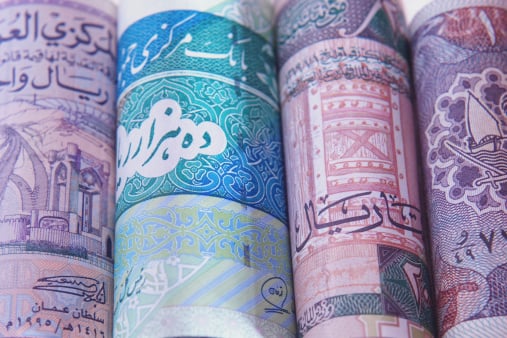Sponsored: Why the region’s financial market is gaining ground
The region’s financial services sector is in the midst of a massive overhaul

According to PWC, the Middle East is one of the world’s fastest growing markets banking and capital markets.
The region’s financial services sector is in the midst of a massive overhaul.
With populations getting younger, better educated and more demanding; increasing diversity in financial products and services; and growing regulatory requirements for better monitoring of processes and developing secure financial systems, banks and financial institutions across the region are investing heavily to match or outstrip their international peers.
More companies are seeing the advantages of listing while some Arab investors, who had until recently automatically looked to the United States and Europe, are now putting a portion of their money into local stock exchanges.
This trend is being helped by the readiness of most Middle East governments to allow foreign investors to buy shares and the replacement of the traditional over-the-counter markets with formal exchanges, which are independently and more rigorously regulated.
A further boost has come from a new generation of investment bankers, who have opened a series of funds specialising in Arab markets and the readiness of more Gulf countries to accept these instruments.
Financial sector development is key to sustainable growth and competitiveness, particularly as regional economies face a challenging environment.
The February 2017 World Bank report on the Middle East states: “this year appears to be one of the toughest for the region as MENA governments face serious policy challenges. The biggest challenge for oil exporters is managing their finances and diversification strategies with oil prices below $45 a barrel.”
Looking specifically at the GCC, growth is expected to remain weak, while fiscal and external balances have deteriorated, according to the International Monetary Fund (IMF).
“Despite the adoption of consolidation measures, projected fiscal deficits remain large in both the short and the medium term,” it said.
“While the needed size and pace of adjustment varies across countries, fiscal consolidation over the medium-term needs to continue in all cases. Non-hydrocarbon revenues have the potential
to be increased across the region. Other policy priorities include additional streamlining of current expenditures, including the public sector wage bill, increasing the efficiency of public
investment, and additional energy price reforms, all while protecting the socially vulnerable, the IMF report urged.
“Ensuring coherence in fiscal and monetary operations is needed to avoid further tightening of domestic liquidity. In particular, it will be necessary to step-up monitoring of the banking sector and ensure effective liquidity-assistance frameworks. NPLs are also expected to rise with the slowing in growth,” it added.
Amid this backdrop, the Middle East Securities Forum, taking place from May 15 to 16 in Abu Dhabi, will aim to highlight the challenges and opportunities in the market in the months and years ahead.
Attendees will be given a unique insight into the macro-economic outlook of the region’s capital and securities markets as austerity measures including value added tax and cuts to subsidies come into force.
There will also be interesting debate on where the market is heading this year, as well as details from US-based equity, fixed income and hedge fund stock market index provider MSCI as to what regional economies will need to do to upgrade from frontier to emerging market status. This comes as the region’s largest market, Saudi Arabia, seeks to follow in the footsteps of Qatar and the UAE under diversification efforts.
Other recent developments, including the introduction of short-selling on the Dubai and Abu Dhabi exchanges, will also be detailed as the region begins its transition to a more mature financial system.
Over 120 experts and specialists from the financial and securities markets are expected to attend the event, organised by Informa.
